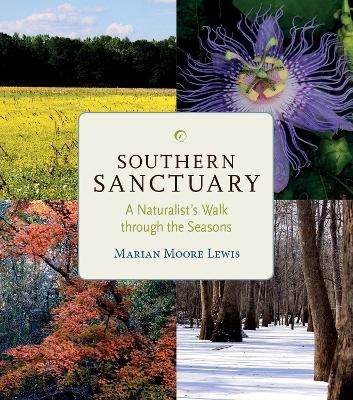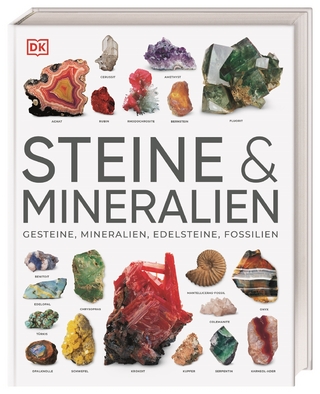
Southern Sanctuary
A Naturalist's Walk through the Seasons
Seiten
2015
The University of Alabama Press (Verlag)
978-0-8173-5783-2 (ISBN)
The University of Alabama Press (Verlag)
978-0-8173-5783-2 (ISBN)
In Southern Sanctuary, retired NASA research scientist and writer Marian Moore Lewis takes readers on a journey of discovery through the Goldsmith-Schiffman Wildlife Sanctuary, a 400-acre preserve in Madison County, Alabama. Writing in the voice of a knowledgeable friend and with accompanying colour photographs, Lewis introduces plants, animals, and other wildlife that reside in the preserve’s meadows, woods, and waterways—like those beloved throughout the American South.
Lewis has organized this beautifully presented volume into twelve monthly chapters. She starts her year in April after the crystalline frosts of winter have thawed. Already a bobcat has stamped a padded paw print in the lush spring muds as crossvine blossoms of magenta and lemon beckon winged pollinators nearby. Walk with her into the months of summer, when trees leaf out into a cathedral of habitats for birds, insects, and small mammals. In language naturalists of any age will enjoy, Lewis explains marvellous compound eyes, called ommatidia, of iridescent dragonflies and the homey carpentry of beavers damming a creek. As coloured reflections signal autumn, companionable songbirds migrate south while the last caterpillars of summer roll themselves into a leaf tent, or hibernaculum, to exist in diapause until next spring. In winter, Lewis admires nature at rest and rocks like chert, sought by Native Americans for arrowheads. Chert lies over bedrock of crenellated limestone, remnant of a time when an undersea Alabama reverberated with life preparing to emerge from the sea.
Southern Sanctuary provides a rich compendium of useful features. Lewis uses both common and Latin names for the insects, plants and flowers, fungi, fish, reptiles, and mammals thus enriching knowledge of botany and zoology. Her photos and descriptions make it easy for explorers of Southern Appalachian riparian habitats to use the book to identify species of plants and animals near their own homes. Rounding out this astonishing work are handy guides to additional resources, taxonomy and measurements, rainfall, soil types, and native trees.
Southern Sanctuary will be of value to educators and students, professional and amateur naturalists, hikers, birdwatchers, botanists, and ecologists. Infusing a wealth of useful information into an elegant design, it encourages an awareness of Alabama’s rich biodiversity. Marian Moore Lewis’s Southern Sanctuary is a new classic in the best tradition of nature writing.
Lewis has organized this beautifully presented volume into twelve monthly chapters. She starts her year in April after the crystalline frosts of winter have thawed. Already a bobcat has stamped a padded paw print in the lush spring muds as crossvine blossoms of magenta and lemon beckon winged pollinators nearby. Walk with her into the months of summer, when trees leaf out into a cathedral of habitats for birds, insects, and small mammals. In language naturalists of any age will enjoy, Lewis explains marvellous compound eyes, called ommatidia, of iridescent dragonflies and the homey carpentry of beavers damming a creek. As coloured reflections signal autumn, companionable songbirds migrate south while the last caterpillars of summer roll themselves into a leaf tent, or hibernaculum, to exist in diapause until next spring. In winter, Lewis admires nature at rest and rocks like chert, sought by Native Americans for arrowheads. Chert lies over bedrock of crenellated limestone, remnant of a time when an undersea Alabama reverberated with life preparing to emerge from the sea.
Southern Sanctuary provides a rich compendium of useful features. Lewis uses both common and Latin names for the insects, plants and flowers, fungi, fish, reptiles, and mammals thus enriching knowledge of botany and zoology. Her photos and descriptions make it easy for explorers of Southern Appalachian riparian habitats to use the book to identify species of plants and animals near their own homes. Rounding out this astonishing work are handy guides to additional resources, taxonomy and measurements, rainfall, soil types, and native trees.
Southern Sanctuary will be of value to educators and students, professional and amateur naturalists, hikers, birdwatchers, botanists, and ecologists. Infusing a wealth of useful information into an elegant design, it encourages an awareness of Alabama’s rich biodiversity. Marian Moore Lewis’s Southern Sanctuary is a new classic in the best tradition of nature writing.
Marian Moore Lewis is a photographer, naturalist, and writer. A lifelong nature advocate, she was instrumental in establishing the Armand Bayou Nature Center near Houston, Texas, USA. She has received awards for fiction, nonfiction, and children’s writing, and published over a hundred research papers in scientific journals. Her photographs have been included in the Sanctuary Artists: The Art of Nature exhibitions in venues throughout north and central Alabama, USA.
| Erscheint lt. Verlag | 30.4.2015 |
|---|---|
| Zusatzinfo | 152 colour illustrations, 1 map, 4 tables |
| Verlagsort | Alabama |
| Sprache | englisch |
| Maße | 200 x 220 mm |
| Gewicht | 1220 g |
| Themenwelt | Sachbuch/Ratgeber ► Natur / Technik ► Natur / Ökologie |
| Reisen ► Reiseberichte ► Nord- / Mittelamerika | |
| ISBN-10 | 0-8173-5783-1 / 0817357831 |
| ISBN-13 | 978-0-8173-5783-2 / 9780817357832 |
| Zustand | Neuware |
| Haben Sie eine Frage zum Produkt? |
Mehr entdecken
aus dem Bereich
aus dem Bereich
über 500 faszinierende Gesteine, Minerale, Edelsteine und Fossilien
Buch | Hardcover (2023)
DK Verlag Dorling Kindersley
CHF 39,90
Familien und Gattungen einheimischer Pflanzen
Buch | Hardcover (2022)
Haupt Verlag
CHF 67,95
vollständig aktualisierte Neuausgabe mit den zusätzlichen …
Buch | Softcover (2023)
Westend (Verlag)
CHF 30,80


